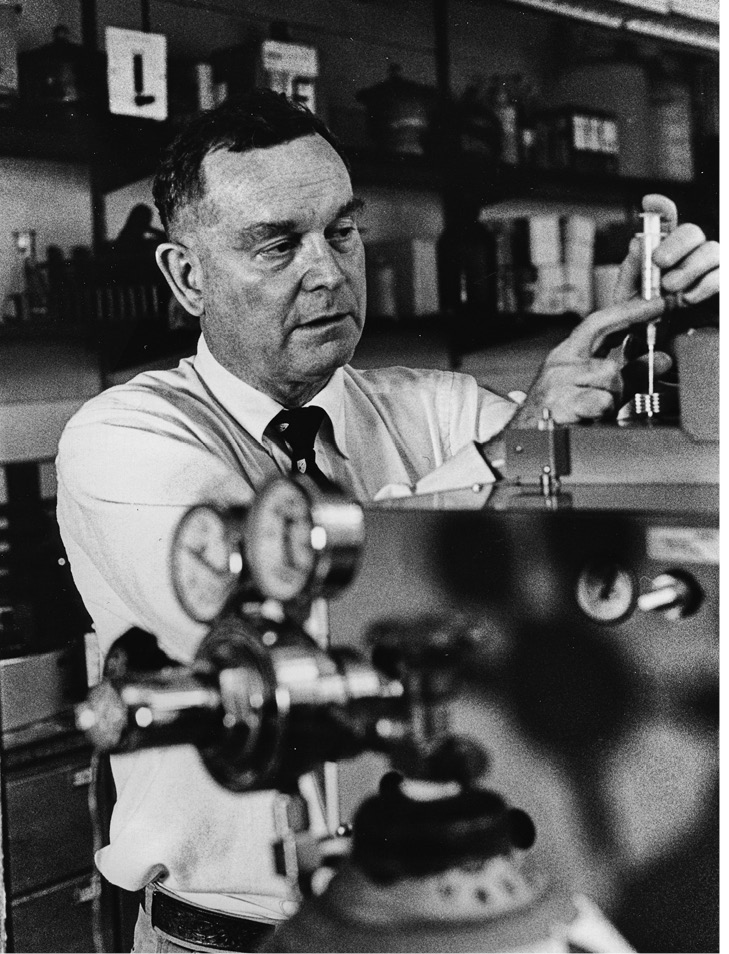
David J. Wilson, emeritus professor of chemistry, of Belleville, Michigan, died Jan. 12, 2017, after a three-year bout with melanoma. He was 86.
Wilson taught at the University of Rochester for 12 years before joining the Vanderbilt chemistry faculty in 1969. By the time he retired in 1995, he had published three books and about 300 journal articles, and had supervised the research projects of 34 Ph.D. students and a comparable number of master’s and undergraduate researchers.
His early research emphasized quantum and classical theoretical methods for investigating chemical kinetics problems at the level of atoms and molecules, and included a paper recognized as a landmark contribution to chaos theory. He taught courses at all levels, from freshman to advanced graduate, always with enthusiasm and concern for his students’ success.
In the 1960s, Wilson became involved in environmental advocacy when he joined efforts to remove lead paint from old houses in Rochester. In 1967 he received a conservation award for his efforts to stop sewage contamination of Lake Ontario beaches from an outdated treatment plant.
His environmental interests became the focus of his scientific research after he arrived at Vanderbilt, and his research group developed methods for removing pollutants from air, water and soil. In 1983 he was the first recipient of Vanderbilt’s Alexander Heard Distinguished Service Professor Award, which recognizes “contributions to the analysis and solution of contemporary social problems.”
In Nashville he continued his “citizen scientist” efforts, helping to identify a large hazardous waste site in West Tennessee and serving as chair or president of several organizations, including the Tennessee Environmental Council and the Tennessee Academy of Sciences. Through the academy and involvement with the Boy Scouts, Wilson inspired science studies by school students and mentored many in science fair projects. He helped bring the International Science and Engineering Fair to Nashville in 1992.
In 2003, Wilson moved to Michigan to be near family. There he established a watershed ecology program for local schools. His final environmental fight led to the banning of coal-tar driveway sealants in his township.
Wilson is survived by his wife of 64 years, Martha “Marty” Wilson, BSN’80; four sons, including William David Wilson, BA’82, and Takio Asagiri, MS’78; a daughter and 10 grandchildren.
—DAVID SALISBURY